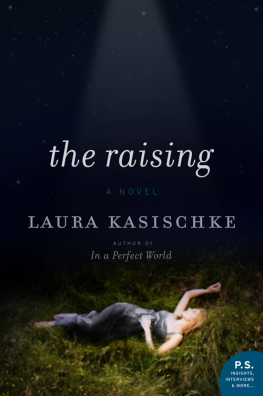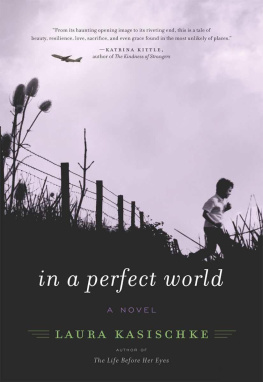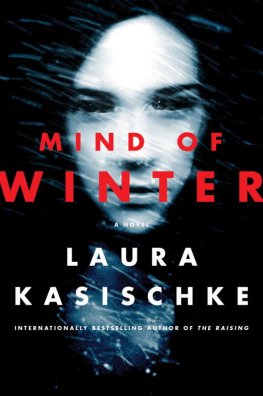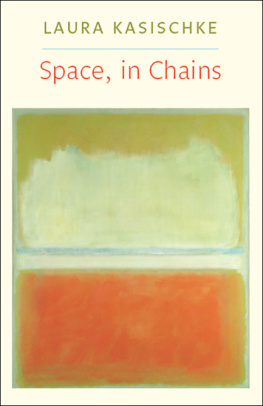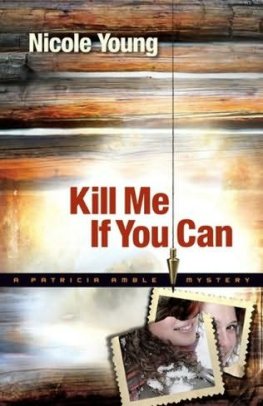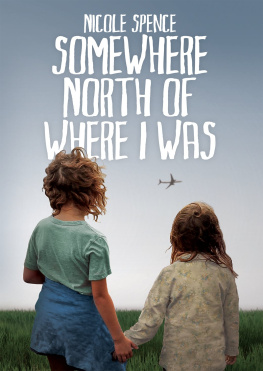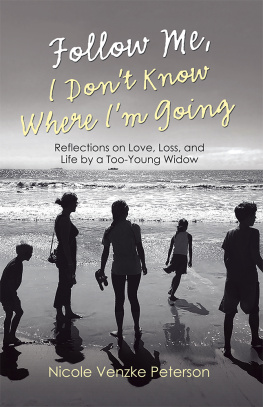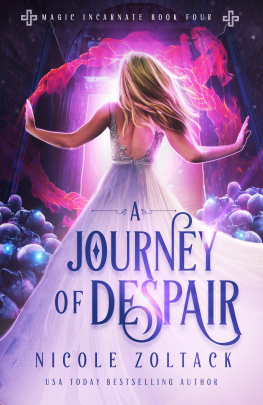The Raising
A Novel
Laura Kasischke

Dedication
For Bill
Epigraph
We are enmeshed in a sad dilemma when we ask if these apparitions are natural or miraculous.
MONTAGUE SUMMERS , The Vampire: His Kith and Kin
And all the winds go sighing,
for sweet things dying.
CHRISTINA ROSSETTI
Contents
T he scene of the accident was bloodless, and beautiful.
That was the first word that came to Shellys mind when she pulled over:
Beautiful.
The full moon had been caught in the damp bare branches of an ash tree. It shone down on the girl, whose blond hair was fanned around her face. She lay on her side. Her legs were pressed together, bent at the knees. She looked as if shed leapt, perhaps from that tree or out of the sky, and landed with improbable grace. She was wearing a black dress, and it was pooled around her like a shadow. The boy had already climbed out of the smashed vehicle and crossed a ditch full of dark water to kneel by her side.
He seemed about to take her in his arms. He was speaking to her, pushing her hair out of her eyes, gazing into her face. To Shelly, he did not appear panicked. He seemed stunned, and rapturous with love. He was kneeling. He was just beginning to slide his arms beneath her body, to cradle or lift her, when Shelly came to her senses long enough to honk the horn of her car. Twice. Three times. He was too far away to hear her no matter how loudly she might shout, but he heard her honk her horn, and looked up. Startled. Confused. As if hed thought that he and the girl were the last two creatures on earth.
He was far from Shelly, on the other side of the rain-filled gash, but seemed to wait for her to tell him what to do, and Shelly was somehow able to tell him, as if they could speak to one another without bothering to speak. As if they could read one anothers thoughts. (Later, she would consider this. Perhaps she hadnt spoken to him at all, shed reason, or maybe shed been shouting and hadnt realized it.) However it had happened, Shelly managed to tell the boy, calmly, so he would understand, If shes injured, you dont want to move her. We need to wait for the ambulance.
This was the one thing Shelly knew about accidents, about injuries. Shed been married for a few years to a doctor, and that detail had stuck.
The ambulance? the boy asked. (In Shellys memory his voice was clear and close. But how could it have been?)
I called them, Shelly said. From my cell phone. When I saw what happened.
He nodded. He understood.
What happened? he asked. Who was that? In the car without headlights? Why?
I dont know, Shelly said. You ran off the road.
Help, he said thena statement, not a cryand the bare monosyllable of it was heart-wrenching. A cloud passed over the moon, and Shelly could no longer see him.
Hey? she called, but he didnt answer.
She turned off the engine. She opened her car door. She took off her shoes and waded carefully into the ditch.
Im on my way, she called. Just stay where you are. Dont move the girl. Dont move .
The water was surprisingly warm. The mud on the soles of her feet was soft. She slid only once, climbing up the opposite bankand that must have been when she cut her hand on some piece of chrome torn from the wrecked car, overturned ten feet ahead of them in the road, or on a shard of broken glass from the windshield. But Shelly didnt feel it at the time. Only after the twin ambulances had flashed and wailed away from the scene would she notice the blood on her hands and realize that it was her own.
When she finally climbed out of the ditch and reached the boy and girl, the cloud had passed, and Shelly could see clearly again:
The boy was lying down beside the girl now, his arm wrapped around her waist, his head at rest in her blond hair, and the moonlight had made them into statues.
Marble. Perfect. Rain-washed.
Shelly stood over them for a few moments, looking down, feeling as if shed stumbled onto something secret, some symbol in a dream, some mystery of the subconscious revealed, some sacred rite never intended for human eyes, but which she had been singularly and mysteriously invited to see.
T here was a sad landmark on every block of that town:
The bench theyd sat on, watching the other students walk bywith their backpacks, short skirts, iPods.
The tree theyd stood under during a downpour, laughing, kissing, chewing cinnamon gum.
There was the bookstore where hed bought the collection of poems by Pablo Neruda for her, and the awful college sports bar where theyd first held hands. There were the pretend-Greek columns that pretended to hold up the roof of the Llewellyn Roper Library, and Grimoire Gifts, reeking of patchouli and incense and imported cloth, where hed bought the amber ring for herset in silver, a globe of ancient sap with a little prehistoric fruit fly trapped in it for eternity.
And the Starbucks where they went to study, and never opened a book.
Craigs father cleared his throat and slowed down at an intersection when a girl in tight jeans, flip-flops, and a low-cut tank top walked in front of the car without even glancing over. She was nodding her head in time to something she was hearing through the white wires plugged into her ears. Craigs father looked over and said, in a voice thick with emotion, You okay, buddy?
Craig nodded solemnly, straight ahead, and then looked over at his father. They both attempted to smile, but to someone seeing it through the Subarus windshield it might have looked like two men grimacing at one another, each gripped suddenly and simultaneously by chest pains or intestinal discomfort. Sun slid through the car windows in the slanted, distant way of a bright day in early autumn; obviously, their side of the planet was tilting away from the sun. The girl passed, Craigs father stepped on the gas, and the car moved through the green shade of the huge, leafy oaks and elms that lined the road through campus, and which had been greeting new and returning students to the university for nearly a hundred and fifty Septembers.
Take a left here, Dad, Craig said, pointing.
His father turned onto Second Street. On the corner a girl with an old-fashioned bike was stomping at the kickstand near the curb. Her hair was so blond it glowed. It was the kind of hair that Craig had always distrustedtoo seraphic, almost God-fearingon girls.
Until Nicole.
But this girl at the curb with the bike was nothing like Nicole.
This girl had seen too many music videos, and was trying to look like one of the straggly, anemic blondes dancing behind the band. Her hair was greasy. Her nose was pierced. Her jeans sagged down over the sharp blades of her hipbones. She was the kind of girl Craig might have dated for a few weeks back home. Back then, before Nicole.
Take a right now, Dad, he said.
His father slowed down on narrow King Street. It was still cobblestone, somehow. Some strange nineteenth-century leftover. (Had they simply forgotten to pave it?) The tires of the Subaru rumbled over the stones, and the rearview mirror rattled.
Here, on King Street, the trees made a canopy overhead, and the houses sagged with their decades at the edges of the sidewalks. These decrepit mansions must have been, at one time, inhabited by the towns elite; Craig could picture women in bustled skirts, men with handlebar mustaches and bowties, rocking on the front porches, being brought glasses of lemonade by servants.
But it was a student slum now. The thudding bass of someones stereo served as a heartbeat to the whole block. Couches sat on the porches and on the lawns. Bikes appeared tossed into piles, leaning into each other, locked up to wrought-iron fences. There were hitching posts for horses at the ends of the driveways, most of them painted the schools colors: crimson and gold. Two shirtless guys standing several lawns apart threw a football between them with what seemed like malicious force, while a girl in a bikini on a lawn chair watched it fly back and forth in front of her. Against the sky that football looked like the pit of some piece of bright blue fruit.
Next page
